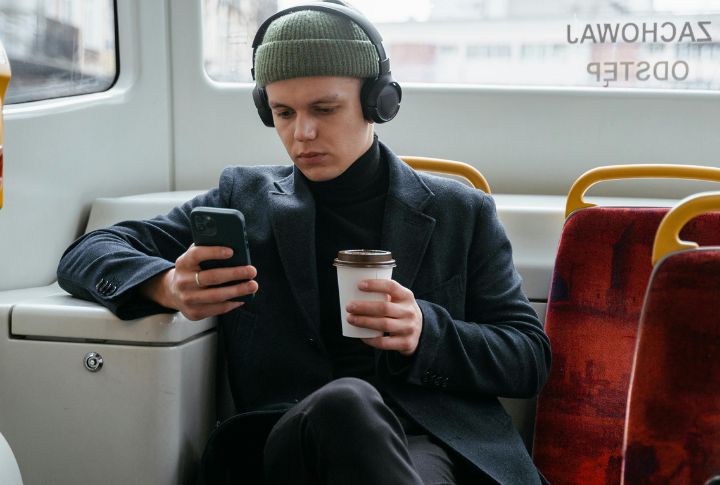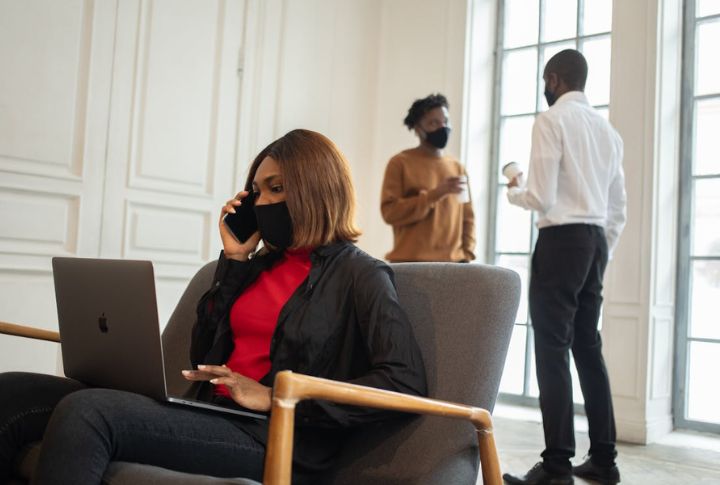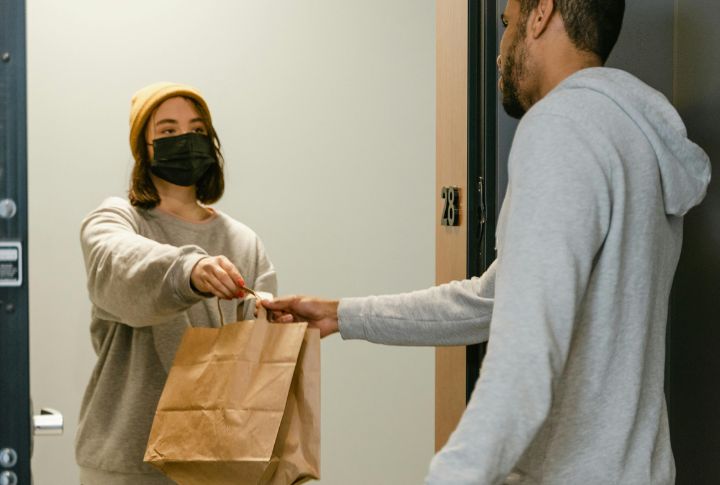
That nagging feeling of loneliness isn’t just in your head, and it’s probably not because you’re antisocial or broken. Chances are, you’re unconsciously practicing isolation without even realizing it through perfectly normal daily routines. These aren’t big, obvious mistakes—they’re tiny habits that fly under the radar while slowly eroding your social connections. Here’s what might be happening behind the scenes.
Skipping Breakfast With Family

The daily ritual of breakfast builds more than just nutrition. As for shared meals, they create opportunities for meaningful family connection. Breakfast is also a way to plan your day together with your loved ones. However, eating alone regularly can increase feelings of isolation over time.
Traveling Solo Only

Solo travel can feel empowering, but it also comes with stretches of loneliness. Without companions, everything can feel lonely, including trails, sightseeing, and stargazing. There’s just no one to share spontaneous moments with. Even adventurous solo trips can leave a quiet gap that group experiences naturally fill.
Avoiding Small Talk With Neighbors

Small talk with neighbors creates vital community bonds. Plus, neighborhood block parties usually start with small talk between residents, and brief conversations soon build a sense of belonging. Just a simple “hello” can brighten days. On the other hand, skipping these exchanges means less local support and bonding.
Declining Invitations To Clubs Or Classes

Saying no to dance classes or golf clubs may seem easy, but it changes your social nature. These shared spaces are perfect for meeting new friends and learning something new together. If you take part in just one activity, it can make you more confident and improve your social skills.
Sitting Alone In Cafes

While cafes are social spaces by design, being alone may reduce chances for casual conversation. Thankfully, many places offer communal tables to encourage connection. So, bring a book or journal, and create opportunities for friendly exchanges with fellow patrons. Otherwise, frequent solo visits to cafes can quietly increase feelings of isolation.
Wearing Headphones All Day

Those white cables dangling from your ears establish invisible walls. Wearing headphones for long periods can discourage spontaneous conversations with others. This habit tells people that you prefer not to be disturbed. Beyond that, if you use headphones as a silent barrier, even when no audio is playing, it’s usually the first sign of isolating yourself.
Walking Alone Every Day

You might love your peaceful morning walks, and that’s totally fine. However, if they’re your only walks, you’re missing out on something special. Walking with others turns routine exercise into genuine connection time—and the miles go by so much faster without you noticing.
Ignoring Colleagues During Breaks

Break time isn’t just for caffeine—it’s a prime interaction hour. Avoiding coworkers might feel simpler, but it keeps relationships shallow. So, take a few minutes to chat or share a snack, and you’ll notice the vibe in the office brighten. Small moments make a big difference in feeling part of the team.
Scrolling During Conversations

Your phone might seem harmless during conversations, yet “phubbing,” snubbing others to check your device, sends a clear message of disinterest. Using your phone when talking to others can make them feel unimportant. This habit reduces face-to-face interaction quality.
Skipping Birthday Or Holiday Celebrations

Do you keep making excuses to skip family birthdays and holiday dinners? All those missed moments add up. While everyone else is creating memories and inside jokes, you’re sitting at home wondering why you feel so disconnected from the people who matter most.
Refusing To Attend Networking Events

You might think skipping networking doesn’t matter. It actually limits opportunities. Events like these are prime spots for meeting people who can help your career. Virtual or in-person, they remain the top ways to find mentors, collaborators, and new opportunities.
Avoiding Volunteer Projects

Not signing up for volunteer projects might seem harmless. The catch? You miss chances to meet with people and make friends. Volunteering brings folks together for a cause, and travel-based programs add a whole extra layer of fun and bonding.
Focusing Only On Solo Hobbies

The peace of solo hobbies can mask reduced social opportunities. While activities like book clubs and art classes turn interests into social events, many people miss these connections. Group hobbies naturally create chances for connecting with like-minded individuals. You can also find balance by mixing independent and shared activities.
Not Asking For Help Or Advice

People usually feel honored when asked for their advice or expertise. Many hesitate to reach out, missing chances to build trust and form unexpected friendships. Beyond that, avoiding requests for help can make you feel unsupported and alone.
Neglecting Old Friendships

Reconnecting with old friends usually feels effortless, as if time stood still. These relationships provide irreplaceable emotional support and shared history. Though some people maintain regular friendship check-ins, others allow these vital bonds to fade, which increases feelings of loneliness.
Spending Evenings Watching TV Alone

There’s nothing wrong with watching TV alone, though making it a nightly habit can limit your options. Solo viewing can make evenings feel repetitive and less productive. Adding a new activity or hobby alongside screen time keeps your evenings balanced, mentally active, and far more interesting.
Replacing Meals With Delivery

You tap “order now” again instead of suggesting a cooking night with roommates or family. Each solo meal eaten from takeout containers feeds your loneliness as much as your hunger. The convenience that is promised to simplify life is quietly isolating you from meaningful mealtime connections.
Skipping Group Exercise Or Sports

Group exercise provides both physical and social benefits for participants. Team sports usually have post-game traditions that build friendships, while many gyms offer group classes to help members connect. In turn, avoiding team sports may mean missing out on teamwork and camaraderie.
Skipping Regular Social Check-Ins

You keep meaning to text that friend from work; however, somehow, three months slip by without contact. Those “I should call Mom” thoughts pile up even as your phone stays silent. This pattern of delayed communication slowly erodes the connections that could combat your growing sense of isolation.
Skipping Morning Greetings With Housemates

Your morning routine involves avoiding eye contact and conversation with the very people who could combat your daily loneliness. Each silent exit reinforces the feeling that you’re alone even when surrounded by others. Those few seconds of acknowledgment could transform isolation into connection.

